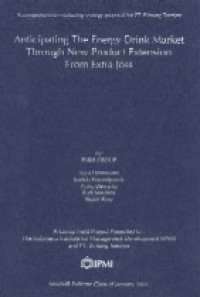
Preparation of PT. Perkebunan Nusantara (Persero) to Go Public
| Gmd : Text
| Availability :
| 00000008651 | 136 | (GFP) | Available - Ada |
In 1994 PT Perkebunan Nusantara (Persero) as group managed over one millions ha planted acreage that consists of nine perennial crops such as oil palm, rubber, cacao, tea, coffee, coconut, chinchona, kapok and clove, and three annual crops such as sugar cane, tobacco and cotton. Three of those crops (oil palm, rubber, and sugar cane) constitute 85% of the total acreage. Plantation activities comprises of agriculture practices, processing of raw material into intermediary products or end- use products, and the marketing of its products.
PT Perkebunan Nusantara IV (Persero), one of the 14 PTPNs, was established in 1996 as a consolidation of PT Perkebunan VI, PT Perkebunan VII and PT Perkebunan VIII. It has 31 plantations with a total of 118,882 ha of oil palm, 8,321 ha of tea and 8,085 ha of cacao. Total sales revenue in 1991 was Rp 346,596 millions and in 1995 was Rp 581,034 millions a growth of13.4%per annum. Net income after tax grew from Rp 671264 millions in 1991 to Rp 164,923 millions in 1995, a growth of 29% per annum.
Financial analysis for five years (1991-1995) showed that, in general, PTPN IV showed a good financial performance. In comparing its financial ratios with two listed private plantation companies, i.e., PT Bakrie Sumatera Plantations and PT PP London Sumatra Indonesia, PTPN is in per with those two companies. As regard to its net income/sales PTPN shows a better performance over its peers.
PTPN IV has already started shifting toward end-use products, even though the potential is not yet exploited to its maximum. .
If PTPN IV decides to go public it needs to address some problems, such as:
- Many investors have not enough knowledge about plantation operations. Therefore, PTPN needs to build image and informs the public about it.
- PTPN produce commodities are susceptible to price fluctuations which in turn will affect earning per share (EPS).
- Investors may not be highly interested to invest in PTPN in its present nature of business (agriculture), hence there is a need to shift-to agro-industry producing end-use products.
- Controlled marketing of CPO is seen as an adverse policy toward maximizing PTPN earnings.
Going-public can be used by PTPN as a vehicle to tap an alternative source of financing where cost of financing, is not fixed, but tied to profitability level. That fund can be utilized in its endeavor to shift PTPN from agriculture company into agro-industry producing end-use products or higher value-added products. It is in the interest of shareholders or investors for PTPN to have a strong market position, continuous growth and earns high return on investment.
Researc Location: PT Perkebunan Nusantara
Supervisor: Manggi T. Habir
Accepted on December 1996
For IPMI Internal -- Read at Library Only.
| Series Title |
-
|
|---|---|
| Call Number |
136
|
| Publisher Place | Jakarta |
| Collation |
ix, 61p.: tabs., figs., apps.; 27 cm.
|
| Language |
English
|
| ISBN/ISSN |
-
|
| Classification |
-
|
| Media Type |
-
|
|---|---|
| Carrier Type |
-
|
| Edition |
-
|
| Subject(s) | |
| Specific Info |
-
|
| Statement |
-
|
| Content Type |
-
|
No other version available







